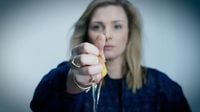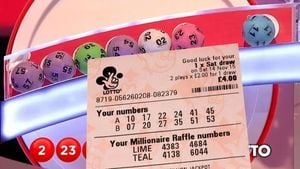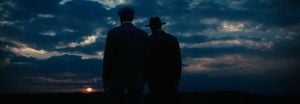In recent years, more than 3,400 Dutch women have opted for a procedure known as 'social freezing,' allowing them to freeze their eggs to postpone motherhood. This growing trend is largely driven by women seeking to delay childbirth until they find the right partner or feel it is the right time in their lives. Currently, over 40,000 eggs are stored in facilities across the Netherlands, according to a study conducted by Omroep WNL at thirteen fertility clinics.
The documentary series 'Welmoed & de Bevroren Eitjes,' hosted by journalist Welmoed Sijtsma, delves into the reasons behind this trend. Sijtsma explores the hopes and fears associated with social freezing, following women through their experiences in the treatment rooms and speaking with medical professionals. "It’s a world between hope and fear, as you wonder if you will ever use those eggs and if you can even get pregnant," Sijtsma explains.
Almost all clinics involved in the study reported a significant increase in women choosing social freezing. For instance, Amsterdam UMC and Maastricht UMC noted a doubling in numbers compared to previous years, while NIJ Clinics reported a 43% increase. At Isala Zwolle, the number of women seeking help rose from a handful between 2020 and 2022 to dozens in 2023. However, the Erasmus MC maintained a stable rate, assisting about 50 to 60 women annually.
The financial commitment for this procedure can be substantial. Women typically pay between €3,500 and €4,500 per egg retrieval, along with an annual storage fee of approximately €160. This investment reflects the importance many women place on their reproductive choices.
Despite the growing number of eggs being frozen, many women have not yet returned to use them. At TFP Leiderdorp, only 5% of women have come back for their eggs, while at UMC Utrecht, the figure stands at 39% (as of 2020). Other facilities reported that only a few women have returned. This trend may be attributed to medical advice suggesting that women first attempt to conceive naturally or pursue standard IVF treatments before resorting to their frozen eggs.
In the documentary, Sijtsma, who is 34 and without children, investigates her own fertility and the implications of her choices. "Sometimes it’s suggested online that you buy certainty with this procedure, but that’s not always the case. An egg that has been frozen does not guarantee a child," she cautions. The series aims to present all the facts so that women can make informed decisions about their reproductive futures.
In the Netherlands, eggs can be stored and used until a woman reaches the age of 50. After this age, the options are limited to destroying the eggs, donating them, or using them for scientific research.
Welmoed Sijtsma’s exploration into the world of social freezing will be available for viewing starting May 7, 2025, on NPO Start, with weekly broadcasts at 21:10 on NPO 3. The documentary promises to shed light on the complex emotional and medical landscape surrounding women's reproductive choices.





